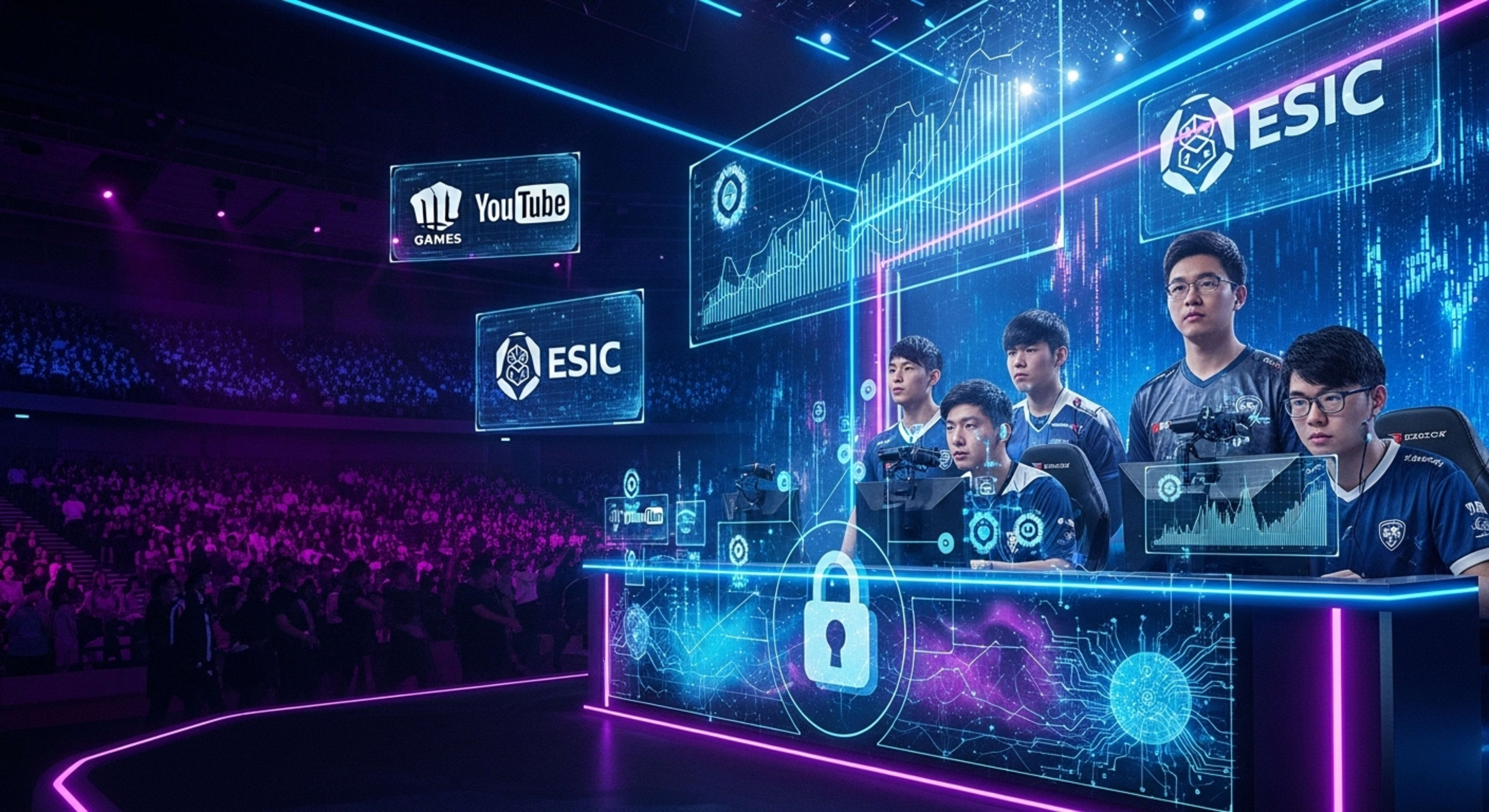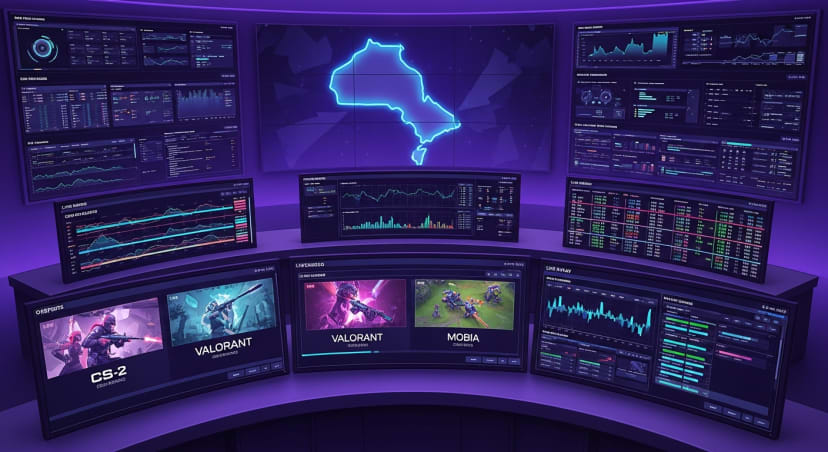Esports Betting Embraces Sponsorship Reforms

Recommended casinos
Key Takeaways
- Riot Games unlocks betting sponsorships for top-tier teams, injecting fresh revenue while enforcing strict vetting to safeguard integrity.
- YouTube's tightened rules on gambling content challenge esports creators and broadcasters to adapt promotional strategies.
- ESIC's new anti-corruption alliance with BETBY bolsters global monitoring of suspicious betting patterns in competitive play.
- Deposit limit mandates in the EU enhance player protections, signaling a broader push for responsible wagering across operators.
Riot Games Opens Doors to Betting Partnerships
Riot Games, publisher of League of Legends and VALORANT, has formally permitted Tier 1 esports teams to secure sponsorship deals with licensed betting operators, marking a pivotal evolution in the ecosystem. Announced via an official blog post, the policy—effective immediately for 2025 leagues—requires Riot to rigorously vet all partners to ensure compliance with local regulations and content standards. No betting logos will appear on jerseys or in broadcasts, and a portion of sponsorship revenues will fund Tier 2 tournaments, integrity programs, and player education.
This shift addresses the reality of a $10.7 billion global betting turnover on Riot titles in 2024, according to Sportradar data, much of which occurs in unregulated markets. By channeling partnerships through approved channels, Riot aims to mitigate risks like match-fixing while diversifying team funding. For operators, it unlocks premium marketing opportunities in high-engagement APAC and EU leagues, potentially boosting odds innovation and fan retention. Stakeholders in Brazil and Australia, where esports wagering surges, stand to gain from enhanced data integrations with Riot's preferred provider, GRID.
The move pressures rivals like Valve to reconsider similar restrictions, fostering a more mature betting landscape. However, it underscores the need for operators to prioritize responsible gaming tools to align with Riot's guardrails.
Source: Riot Games
YouTube Cracks Down on Gambling-Linked Content
YouTube's updated policies, effective November 17, 2025, expand restrictions on videos promoting or linking to online gambling, including esports-related activities such as skin trading in Counter-Strike 2. The platform will demonetize or age-restrict content, directing users to bet on in-game items with monetary value, such as CS: GO skins or VALORANT cosmetics, which will impact creators who rely on case-opening streams or referral links for revenue.
This regulatory pivot from Google-owned YouTube targets the blurred lines between entertainment and wagering in APAC and EU markets, where CS2 skin betting drives millions in unofficial volumes. Esports organizations broadcasting VODs or highlights via YouTube must now audit sponsor integrations to avoid penalties, potentially shifting focus to dedicated platforms like Twitch. For betting operators, the rules complicate affiliate marketing, urging a pivot to compliant, non-monetary promotions.
While aimed at curbing underage exposure—esports audiences skew young—the changes could fragment content distribution, reducing visibility for legitimate operators. In regions such as Germany and the UK, where skin betting overlaps with regulated sportsbooks, this may accelerate calls for unified integrity frameworks.
Source: Esports Insider
ESIC Partners with BETBY on Anti-Corruption Efforts
The Esports Integrity Commission (ESIC) has onboarded BETBY as its latest anti-corruption associate, enhancing real-time monitoring of betting irregularities across global tournaments. Under the agreement, BETBY's platform—serving over 1,000 operators—will integrate ESIC's Suspicious Betting Alert Network (SBAN), which flags anomalies in esports markets such as Dota 2 and League of Legends.
This collaboration emerges amid growing concerns about match-fixing in the APAC and Latin American circuits, where unregulated betting volumes exceed $2 billion annually. BETBY's AI-driven odds and data feeds will now cross-reference ESIC alerts, enabling faster investigations and bans. For tournament organizers like ESL FACEIT Group, it means fortified event security, reducing disruptions that erode bettor confidence.
Operators benefit from proactive compliance, as ESIC certification signals trustworthiness to regulators in Australia and Canada. The partnership extends BETBY's integrity commitments, following ties with IBIA, and positions it as a leader in ethical esports wagering. As global volumes hit $3 billion in 2025 projections, such alliances are crucial for sustaining market growth without integrity scandals.
Source: Esports Insider
EU Mandates Deposit Limits for Enhanced Transparency
The European Union's gambling regulators have implemented mandatory deposit limit protocols for online operators, effective October 31, 2025, to provide users with real-time financial oversight. Platforms must now display customizable weekly, monthly, and annual caps, with seamless self-exclusion options integrated directly into user dashboards—applicable to esports betting verticals.
In key markets like the UK and Germany, where esports wagers account for 15% of total handle, this addresses vulnerabilities in high-volume titles like VALORANT. The Gambling Commission emphasized that non-compliance risks fines of up to 10% of revenue, prompting operators to upgrade their backend tools. For Latin American entrants, such as Brazil's newly licensed firms, it sets a benchmark for cross-border standards.
This regulatory harmonization fosters safer ecosystems, potentially reducing churn from problem gambling while attracting institutional investors wary of reputational risks. Esports publishers, including Epic Games, may align policies to support compliant partners, accelerating market maturation in Africa and beyond.
Source: Esports Insider











